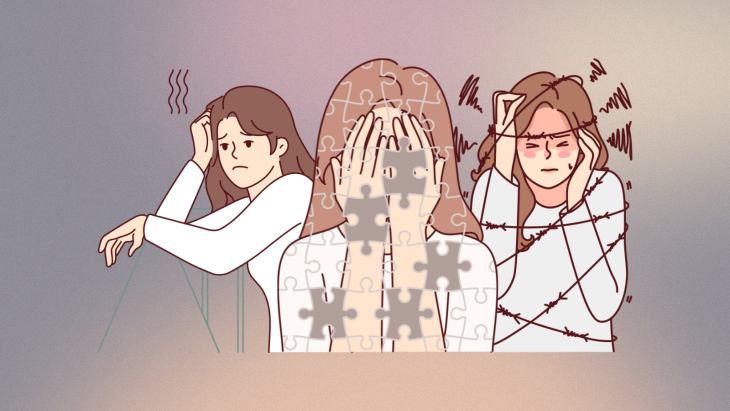Recent Posts
- I broke up with my partner, but now I am having doubts. Did I do it out of the right reasons or was I just being fearful?
- My Quick Temper Pushes People Away. What Do I Do To Manage My Anger?
- How does noise affect my mental health?
- I want to be a better problem solver. What is a step by step approach?
- Escapism. When is it healthy? When is it damaging?
Most Popular
What is the best way to handle a life crisis?

What is the best way to handle a life crisis?
Difficult and painful times in our life leave a mark in our memories and our overall well being. Those who have overcome might carry a limp, but continue with life hoping that when the next crisis comes, they are more confident because the experience made them a better person.
At one point in time, a life crisis hits us; no one is spared. It is just fitting that we want to know how to respond to and prepare for a life crisis.
We can take inspiration from English historian and churchman Thomas Fuller when he said “All things are difficult before they are easy.” Improving our perspective and learning coping skills may help us surpass and adjust to significant life experiences, so we come out of them better and thriving.
Hardships in life can significantly impact our mental, physical, and emotional health.
- Mass layoffs during the 2019 pandemic. In 2020, the unemployment rate peaked since the Great Recession and the Great Depression.
- Financial losses and Housing insecurity during the recent pandemic
- Political conflict
- End of relationships, divorce
- Medical emergency
- Death of a loved one
There has been a significant rise in reported mental struggles across different generations in the US. In addition, health outcomes worsened, especially among those who have low income. During the Great recession of 2009, across 54 countries, suicide rates increased for both men and women. This shows us the great impact emotional stress has on individuals and countries.
How do I prepare for and cope with a life crisis?
- Engage in your personal growth.
Being in the midst of a crisis is nothing short of challenging. But researchers have long discovered that the presence of resilience creates a protection against cellular inflammation. Resilience comes from people’s continued efforts to learn from the situation, to find meaning and purpose in the struggle. Inflammation when it becomes long-term and uncontrolled increases our risk for a variety of diseases.
How do you pursue personal growth?
- Connect. Your social connections can provide support in difficult moments. Who among your family and friends are empathetic and are active listeners? Reach out to them.
- Create moments of joy in spite of the pain. Does your hobby make you relax? Does being in nature destress you? Continue to pursue the things you love when you are able.
- Take care of your mind. The battle of maintaining hope is mainly in the mind. The mind is an active organ that does not rest, so we can choose what we feed our mind in a life crisis. Instead of listening to dark or heavy music or watching sad movies, choose audio and videos that would bring you fresh and uplifting messages. What you think about is crucial, for your thoughts will influence your actions.
- Establish self care to maintain your wellbeing.
- Food that loves you. Do you notice that when an extremely stressful event happens, you experience stomach troubles or you lose your appetite? It’s because our digestive tract is affected by stress hormones like adrenaline and cortisol. Meanwhile, they also can increase our appetite for fatty or sugary food. Long periods of stress coupled with unhealthy eating habits may put you at more risk for diseases. Instead, make it a goal to eat a variety of whole food, fruits, vegetables, nuts and legumes.
- Sleep is a priority. When the stress hormones go full swing on us, we find it more difficult to sleep. Toning down on caffeine and alcohol especially late in the afternoon and at nighttime, and limiting gadget use at least 2 hours before sleep allows melatonin, our sleep hormone, to be released.
- Self care also means seeking help. Effective therapies from professional psychologists, mental health therapists or counselors can help you reframe your mindset and manage your emotions. If self-care measures still leave you feeling overwhelmed, have a mental health provider assist you.
Life crises can hit us hard. They might be the most difficult times of our lives, but as we pursue connections, little joys and we take care of our mind and body, we may find ourselves stronger and more equipped to overcome them.







Comments